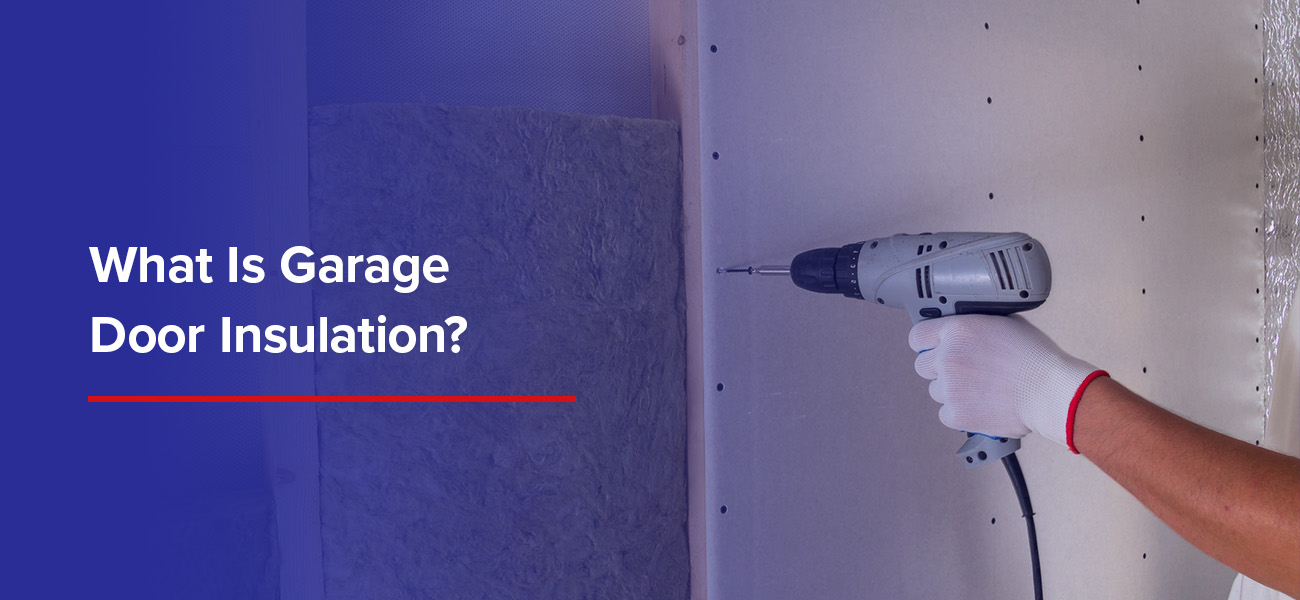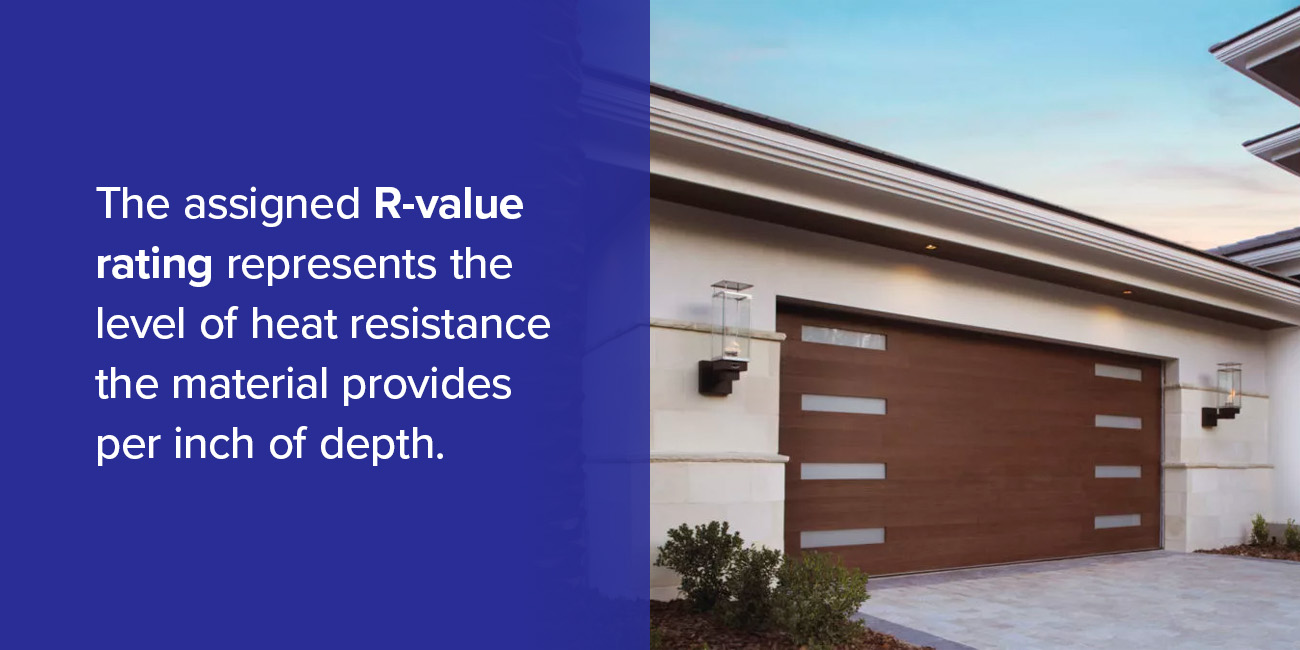What Is Garage Door Insulation?
If you’re like many people who have relocated to Florida from a colder climate, you may have installed insulation in your previous homes to prevent heated air from escaping. You might not know that insulation can be a cooling solution for your home.
Southeast Florida is renowned for hot weather and humidity that lasts most of the year. This heat can infiltrate many areas of your house, including the garage. The result can be an uncomfortable living space and higher energy costs.
An insulated garage door provides an excellent defense by acting as a buffer against hot air. Your house will feel cooler and more comfortable, and you’ll experience increased energy efficiency.
The Fundamentals of Garage Door Insulation
You’ve probably noticed a significant temperature change when you enter the garage from your home’s living space. Since most garages aren’t intended to be living areas, they aren’t constructed to the same standards as the rest of the property. There’s no air conditioning, and the walls often contain small cracks and crevices that allow hot air to penetrate.
An insulated garage door can consist of polyurethane or polystyrene material installed between the panels and guards. These doors keep the heat outside and provide a layer of warmth during southeast Florida’s occasional cold spells.
When choosing an insulated garage door, it’s important to determine the product’s R-value, which is a rating that measures the material’s resistance to heat flow. Generally, a higher R-value provides more effective insulation. Higher R-values add to a door’s cost for that reason.
How Does Insulation Regulate Temperatures?
Insulation affects temperature change inside a garage by forming a barrier between the hot air outside and the cooler air inside the structure. This process reduces heat transfer by decreasing thermal conduction and convection or by reflecting thermal radiation. By keeping air where it needs to be, insulation can help keep your garage temperature consistent throughout the year.
What Are the Benefits of an Insulated Garage Door?
Insulating a garage door in Florida offers numerous benefits for homeowners:
- Increased comfort: You’ll be able to spend more time in your garage without the full effects of the heat and humidity.
- Lower energy bills: Insulation adds to energy efficiency, translating to lower home cooling costs over time.
- Reduced risk of damage: Since most southeast Florida homes don’t have attics or basements, many residents use their garages for storage. By regulating temperatures, insulation protects items stored in the garage from heat and humidity damage.
- Increased longevity: Insulation provides more protection against stress from severe storms, resulting in a longer life span for the door.
Choosing Between Between Uninsulated and Insulated Garage Doors
While uninsulated doors don’t offer the same level of temperature regulation and energy efficiency, they are less expensive than their insulated counterparts. They can also make more sense for detached garages since you won’t have to worry about hot air infiltrating your home.
Learn More About Garage Door Insulation in Florida
The Doorman can answer all your garage door insulation questions and help you decide on the right solution for your home. Contact us for more information or to request an estimate.
Types of Garage Door Insulation
If you’re a homeowner in southeast Florida, you probably know the garage can be a hot and uncomfortable place. The heat and humidity can affect your home’s energy efficiency and damage the items you store in the garage. Prolonged wear and tear could even shorten your garage door’s life span.
Installing a garage door containing insulation is an excellent way to mitigate these factors. Insulation acts as a barrier between the hot outside air and cooler inside air, regulating your garage’s temperature throughout the year.
What Are the Different Types of Insulation?
While some garage doors contain versions of fiberglass insulation in other areas of your home, they’re not necessarily the best choice for moisture protection.
Most garage door insulation consists of either polystyrene or polyurethane. These materials are polymers, which are plastic substances featuring longer molecule chains.
Polystyrene Insulation
Polystyrene insulation is available as panels designed for placement between the door’s steel layers. The material is waterproof, helping to protect against heavy Florida rains. The panels are also easy to customize — they can fit virtually any garage door product, making polystyrene insulation an excellent choice for aftermarket projects. Many homeowners opt for polystyrene due to its lower cost and relatively simple installation.
Polyurethane Insulation
Polyurethane offers a thicker insulation alternative to polystyrene. The installation process entails injecting a spray foam between the two steel layers. The foam then expands to fill all areas of the door. It bonds to the frame, resulting in a sturdier layer of insulation that protects against dents and other damage.
While polyurethane is generally more expensive than polystyrene, its thicker and denser composition provides several advantages for homeowners. It lowers utility costs by making the door more energy efficient, and it adds support and rigidity to the garage’s structure. The door will also operate more quietly with less shaking and vibrating.
Choosing Between Polystyrene and Polyurethane Insulation
Are you trying to decide which insulation type is better for your situation? If you’re like many homeowners, the cost is an important factor. If you want basic protection and aren’t worried about noise or energy efficiency, polystyrene insulation will likely meet your needs. It may also be the more practical option if you have an irregularly shaped door requiring a custom fit.
Conversely, selecting polyurethane insulation makes sense if you spend a lot of time in the garage — for example, you might use some or all of the space as a workshop or home office. Extra insulation makes a difference when a cooler, more comfortable environment is a must. Installing polystyrene insulation will also help make a more significant dent in your utility bills. The enhanced sound-dampening properties can be an additional advantage if you want a quieter garage environment.
Contact Us for Insulated Garage Doors in Southeast Florida
The Doorman is your one-stop headquarters for high-quality insulated garage doors from Clopay®. These advanced products contain Intellicore®, a proprietary insulating material formulated to improve comfort, enhance door strength and lower energy costs. Beyond that, you’ll love the way your new door looks on your home.
Contact us to learn more about the different types of insulation and request an estimate today.
What Is Insulation R-Value?
An insulated garage door can add value to your home in several ways. This space can get hot, especially in the summer. Insulation helps keep the oppressive air outside. Your home will also be more energy-efficient with insulation, resulting in lower utility bills.
Insulation works by slowing down heat transfer — the process in which molecules move from areas of higher temperatures to lower ones. An insulation’s R-value measures the material’s ability to slow the transfer of heat.
What Do R-Value Ratings Mean?
If you’re shopping for an insulated garage door, you’ll likely encounter products with an R-value ranging from 6.3 to 20.4. A higher R-value means the door offers enhanced insulating properties. As a result, you can expect to pay more for a door at the upper end of the R-value scale.
Keep in mind that the assigned R-value rating represents the level of heat resistance the material provides per inch of depth. This means that insulation with a lower R-value could provide similar protection to a higher-rated product when using more material. For instance, 2 inches of R10 insulation can offer the same results as 1 inch of R20 insulation.
What R-Value of Insulation Does Your Garage Door Need?
Since the R-value of insulation for garage doors covers a broad range, choosing the right product for your home can be challenging. The performance of your home’s HVAC system is one factor to consider. If your unit is older and less efficient, you may need a higher R-value to compensate for any deficiencies.
Your garage door’s material also plays a role in the insulation selection process. If your door is made of steel or wood, the natural insulating properties can allow you to choose a lower R-value without sacrificing comfort. An aluminum or glass door may need a higher level of insulation to keep hot air out more consistently.
You should also consider the product type. Fiberglass batt insulation is a low-cost option, but it typically has a lower R-value and doesn’t offer much moisture protection. Its general R-value range is only 3.1 to 3.4. The two insulation types that people opt for are Polyurethane and Polystyrene. Polyurethane foam insulation is available with higher values and can often deliver better results in hotter climates.
Your choice of insulation also relates to whether the garage is attached to your home or a free-standing structure. A low R-value in an attached unit could let hot air into your home and make your cooling system work harder. You won’t have this concern with a detached unit, which means you could get away with lower insulation thickness or possibly do without it.
Get Expert Help From The Doorman of Southeast Florida
At The Doorman, we offer high-quality insulation garage doors from Clopay®, North America’s most trusted manufacturer. Choose from multiple products constructed with high-quality materials in a wide range of R-values to meet your requirements. They’re also WindCode-rated to ensure compliance with all local hurricane resistance standards. Their attractive design and style will dramatically improve your home’s appeal.
Contact us to learn more about the R-value of insulation and get expert product selection assistance today. We can also provide a free estimate with no obligation.



